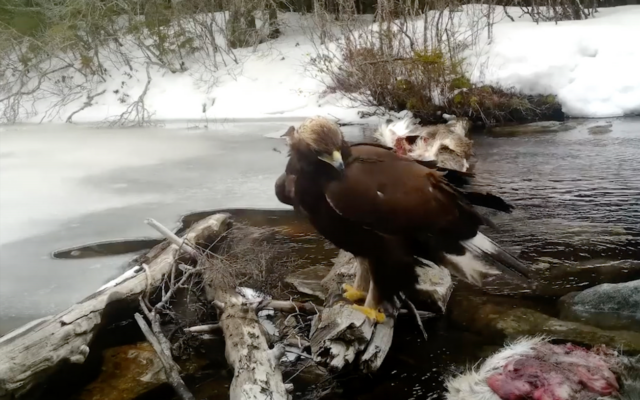
State is using ‘community science’ to study golden eagles in Maine
By Julie Harris, Bangor Daily News Staff
Maine biologists are trying to better understand golden eagles, an endangered species that has not nested in the state since 1997.
To that end, those studying the birds’ habits, including Eastern Golden Eagle Working Group, Conservation Science Global and state biologists, are asking Maine residents to help them gather the information they need to figure out why the birds are seen but aren’t nesting here.
Maine has already brought the bald eagle back from the edge of oblivion after the pesticide DDT nearly wiped out the birds in the state. Today, the state is home to a healthy population of bald eagles estimated at more than 800 nesting pairs, according to the U.S. Fish and Wildlife Service. The birds were taken off the endangered species and threatened species lists by 2008.
Now the state wants to understand the golden eagle and perhaps figure out how to restore a breeding population in Maine.
Golden eagles are listed as endangered under the Maine Endangered Species Act and a species of greatest conservation need under the Maine Wildlife Action Plan, according to the Maine Department of Inland Fisheries and Wildlife.
Although no nesting pairs have been found in Maine since 1997, the birds spend time in the state, which is on their migratory path, during the summer and winter, the MDIF&W said.
“The Maine Golden Eagle Study is part of a large-scale regional effort to better understand golden eagle abundance, distribution, movements, and habitat use in eastern North America,” according to the text of the study description.
Researchers plan to use game cameras primarily, but hope that birders, hunters, landowners, trappers and wildlife enthusiasts would help out too.
People can specifically help by monitoring a baited camera trap, providing a camera trap site, providing lead-free bait, reporting observations of golden eagles through ebird or MAINE Birds Facebook group and helping to spread the word by sharing the page about the study.